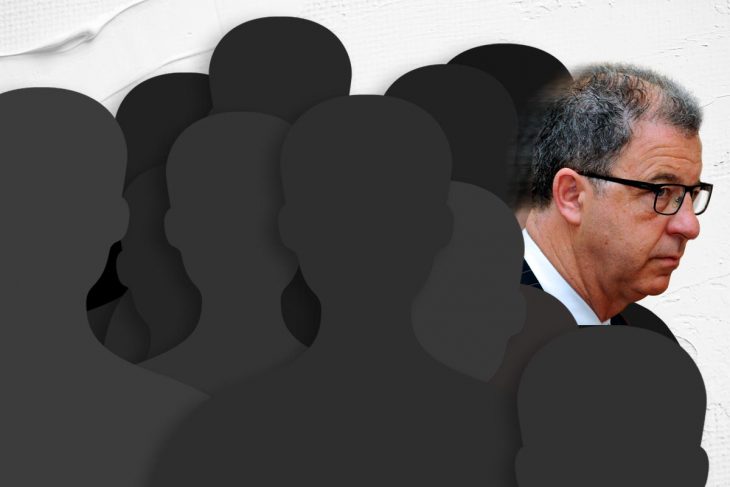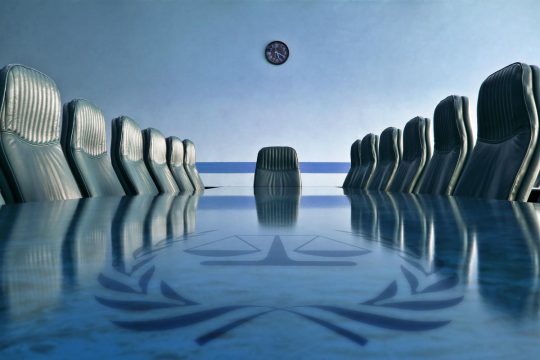On November 13, the Bureau of the Assembly of States Parties to the International Criminal Court (ICC) announced the "expansion" of the list of candidates for the post of Prosecutor. The States thus noted the lack of consensus in favour of one of the four candidates selected by a special committee at the end of June. Ireland's Fergal Gaynor had seemed to come out on top in the consultations, according to the delegate of one member state, but he did not win enough support to reach a consensus. Neither did the other three contenders: Canadian prosecutor Richard Roy, Ugandan judge Susan Okalany and US-Nigerian lawyer Morris Anyah.
These four candidates are still potentially in the running, but they are now joined by those who were shortlisted in April 2020 by the same committee, made up of ambassadors and supported by experts, responsible for identifying the best candidates. A total of 14 candidates were therefore invited to confirm, or not, their candidacy. Committee chair Sabine Nölke asked them to indicate whether they were still "in principle" in the running and to respond by November 17 at the latest. She must now send them the Committee's assessment of their own candidacy. This is a "non-negotiable" evaluation, asserts Nölke in her letter to the candidates, seen by Justice Info. After this they will have to confirm their application again.
Favourite Serge Brammertz pulls out
Considered one of the favourites, Belgian prosecutor Serge Brammertz finally withdrew this week, two sources told Justice Info. In a press briefing following the arrest in mid-May of Rwandan fugitive Félicien Kabuga, Serge Brammertz noted that "the ICC has big, big problems that need to be addressed," and that this responsibility goes beyond the Prosecutor alone. "We all know that it is not by replacing the driver of a car which is broken that this car will win the race," added this racing enthusiast. In the summer of 2019, Brammertz, current prosecutor of the Mechanism that succeeded the UN tribunals for the former Yugoslavia and Rwanda, already hesitated for a long time about entering the race. Solicited by several European states and by NGOs, he made his candidacy conditional on having his hands free to set up a new team at the head of the Prosecutor's office, which he thought was the only way to reform a prosecutorial strategy that has so far been inadequate. Speaking to the press, he also fingered those who make "careers for life" at the ICC. This diagnosis is shared by the experts who have in recent months been in charge of examining the functioning of the Court. In its conclusions, issued at the end of September, this team led by South African judge and former international prosecutor Richard Goldstone, recommended limiting the contracts offered to Court officials, as practised by several multilateral organizations. According to a source close to the Court, "some would already like to discredit the report" and persuade States not to adopt the proposed reforms, particularly on this point. This other battle is still in its infancy and promises to be a tough one. It also weighs on the current election.
In recent weeks, the States have been struggling over the modalities of the new roadmap. Candidates back in the running will be questioned by the States and NGOs during hearings broadcast live on the Internet, the dates of which have not yet been set. Before their interview, they will have had time to consult the 330 pages of the experts' report. In the meantime, five representatives from the five geographical groups represented in the Assembly will have to be appointed. They will be responsible for conducting negotiations with each State and reporting to the President of the Assembly and the head of the working group in New York. If, at the end of these negotiations, there is no consensus on the candidates, the States will then be able to present their own candidates. The election is scheduled to take place during the second part of the Assembly of States Parties, which should take place in New York from December 17 to 23.
A campaign under the shadow of #MeToo
Never before has an election been so hotly debated. Shortly after the publication of the new roadmap, Danya Chaikel, who worked for the NGO Atlas and now for Women's Initiatives for Gender Justice, tweeted on November 17 that she had "received complaints of misconduct regarding three (potential) candidates". “States ignoring this issue are playing fast and loose with the Court’s future ", tweeted Eric Witte of the NGO Open Society Justice Initiative. Questioned by Justice Info, Danya Chaikel explained that she "received confidential complaints", but assured us she was not trying to “name and shame anyone or discredit any candidate”. "The reality is that these complaints might be true, and then we’re running the risk of electing a predator (sic) as the next ICC Prosecutor." This jurist wants to push states to set up a mechanism to receive such reports on candidates, and give such candidates the opportunity to respond to the allegations while protecting the complainants.
The roadmap agreed to by the States Parties indicates that the President of the Assembly of States Parties, assisted by regional representatives charged with conducting bilateral negotiations, "will hold informal consultations with States Parties, ICC officials and civil society", including on "the high moral character of the candidates”. The issue took on a central dimension in the election campaign, where rumours and allegations of sexual or psychological harassment targeted several candidates.
The election of the third prosecutor of the ICC therefore brings us to observe even before its conclusion that it is taking place in a bad climate. Some NGOs suspect that the States are playing games, while the State delegates are trying to elect a Prosecutor who will guarantee the success that justifies the investment - political and financial - in the Court, and a capacity to forecast their actions. The recent sanctions by Donald Trump's US administration against the Court have raised concerns. At the same time, there are other, older issues at stake, such as those that prevailed when the first two Prosecutors were elected.
Appointing friends
The ICC Statute provides for an election by secret ballot and absolute majority. It was after the disputed campaign for the election of the ICC's first Prosecutor in 2002-2003 that the then president of the Assembly of States Parties, Jordan's Zeid Al Hussein, proposed that the Prosecutor be appointed by consensus. This is "a process that diminished the independence provided to individual states by a secret ballot", says researcher Christopher Mahony, who has investigated in depth the circumstances of this election and the American interference in the Court.
On April 21, 2003, Luis Moreno Ocampo of Argentina was elected. Those who elected him were soon rewarded with positions in his office. Silvia Fernandez de Gurmendi, Argentina's representative to the United Nations, became his chief of staff (which did not prevent her from presiding over the Court ten years later). She enlisted as consultants the two main supporters of Ocampo's campaign, according to Professor Morten Bergsmo in "Historical Origins of International Criminal Law": Andras Vamos-Goldman, a Canadian delegate to Rome, and Elizabeth Wilmshurst, Deputy Legal Adviser to the UK Foreign Office until March 2003. Gavin Hood, one of the British delegates at the negotiations, also joined the Prosecutor's office. After his departure, he became a liaison officer between the British and American intelligence and security agencies, before joining the highly controversial data collection company Palantir. Daryl Robinson, one of the Canadian delegates, was also recruited to the Prosecutor's Office, as was lawyer Fabricio Guariglia, the active Argentinean delegate in Rome, now director of the Prosecution division.
Questionable morality
In December 2011, the election of Fatou Bensouda, Ocampo's deputy for eight years, meant preservation of the legacy of an Argentine prosecutor who had not checked all the boxes of "high morality": sexual assault on a South African journalist recorded by the International Labour Organization, possession of offshore accounts, and a crying lack of independence in his criminal policy. As for Silvia Fernandez de Gurmendi, she is now on track to head the Assembly of States Parties. On the agenda for the coming years: the implementation of the recommendations of the Goldstone expertise.
In "Integrity in International Justice," a book by Morten Bergsmo and Viviane Dittrich published this week, the authors say that "it is exceptionally difficult to achieve a culture of integrity in an international court if high officials get away with serious integrity breaches without sanction." After the revelations published three years ago by several newspapers on the functioning of the Court and conflicts of interest involving Luis Moreno Ocampo, the internal investigation opened at the request of Bensouda resulted in the dismissal of two employees, without touching her predecessor and former boss. According to the authors, "international lawyers seem inclined to believe in the civilizing effects of international law in international relations," but "international organizations will not succeed in fulfilling their mandate unless the integrity standard is protected within the organizations”.
It is in this climate that the electoral race continues.
THIRTEEN POTENTIAL CANDIDATES
Here are the thirteen potential candidates for the position of Prosecutor of the International Criminal Court:
- British lawyer Karim Khan
- Irish lawyer and judge Fergal Gaynor
- French prosecutor Brigitte Raynaud
- Irish prosecutor Gemma Moran
- Spanish prosecutor and judge Carlos Castresana Fernandez
- The Attorney General of Palermo Francesco Lo Voi
- German prosecutor Christian Ritscher
- The Attorney General of Estonia Lavly Perling
- Australian prosecutor Lloyd Babb
- Ugandan judge Susan Okalany
- Canadian prosecutor Richard Roy
- Nigerian lawyer Morris Anyah
- Canadian prosecutor Robert Petit







